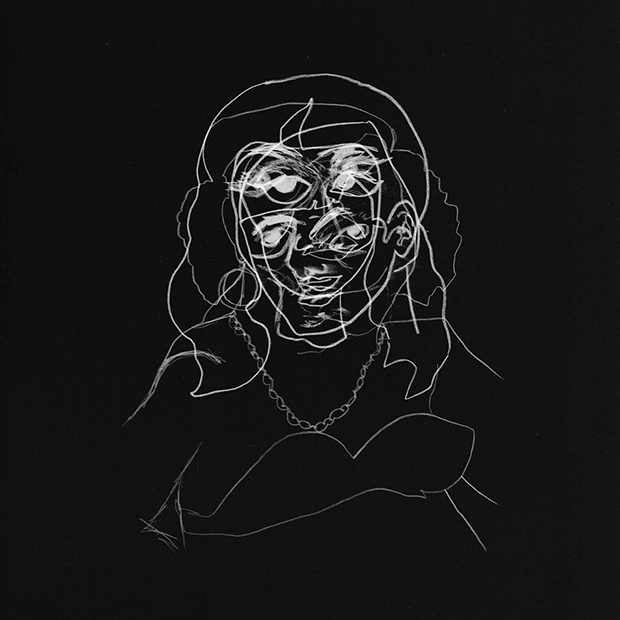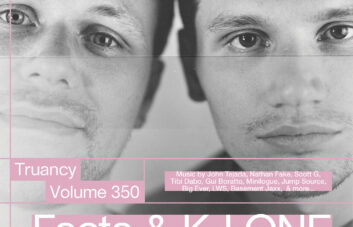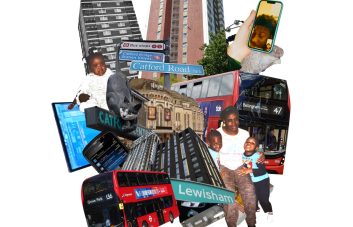Klara Lewis makes strange, dark music. It’s full of unnerving, swollen sounds, and is laced with electronic pulses that might seem to belong in the club, but the layers that surround such beats preclude them from such base functionality. Indeed, interviewing Lewis for The Quietus, Matthew Kent notes that her music seems caught in a “between” place, referring at once to its slippery, unquantifiable nature as well as the netherworld in which he was consuming her music. Her first major release Ett was released on Editions Mego in 2014 and followed a self-released EP, which featured three tracks that would resurface on this album. Later that year she released the five-track Msuic on Peder Mannerfelt Produktion, and now she’s returned to Editions Mego with Too, her second album. It follows a similar pattern to Ett, its rumbling tones and ominous clanking underpinned by worldly found sound.
The album opens with an ever-expanding drone, a track that could be represented crudely by substituting a cone shape for a waveform. It jumps into “Twist”, which feels rigid in its bar lines, a sort of factory-like efficiency informing the sharp blasts that push and pull throughout. Most interesting to note is the bird song fluttering away in the mix. Lewis is known for her intricate manipulation of field recordings, and in this rare instance one senses a natural world seemingly imposing on this constructed sphere. That said, the levels of artifice are truly imperceptible, and this interpretation may be far off the mark.
Putting together a radio show recently, I was struck by the abrupt and unnatural ending of “Twist” — it seems to stop mid utterance. It’s worth returning to that interview with Kent, in which she said that “transitions also fascinate me”. “It’s easy to be lazy when it comes to transitions, but when people choose to be creative some of the most interesting moments can occur. For me it’s often what makes a track.” Indeed “Twist” moves directly into the reversed drag of the title track, which is perforated by the shrill cry of a siren, but shifts in several directions, a track in several movements.
“Beaming” is utterly mesmeric, as swirling winds and thick, smog-like bass envelop the ears, slouching onwards until radio static joins the track like a bewildering chorus. The shift from station to station across the waves is both a comfort and a terror, a familiar feeling made chilling by its new setting. “Once”, which follows, feels like a bright dawn, full of sounds that sway and yawn magnificently. There are swathes of ambient sounds, a nod towards actual, real thudding beats in “Try”, but while a single mood pervades the album, this is undermined by closer “Us”. Ironically chosen as the album’s lead track, it features strummed guitars, a kind of swung groove, and most interestingly a round of applause at its opening.
Just like the forced ending of “Twist”, “Us” breaks down for a moment like a record suddenly stopped, only to jump back up and play again. It’s an arresting moment in the most straightforward and “accessible” (read: bright and welcoming) track Lewis has ever released. A playful ending from this genuinely intriguing and essential artist, who knows if it hints at more than a knowing sense of humour. It is what it is; a breath above ground from an album often shrouded in darkness.




